Capital’s old city swamped by roadworks and there’s no end in sight
The fact that the roadworks on Trikoupi street in old Nicosia have been delayed is probably the least remarkable thing about them.
Trikoupi – heading north from Ochi square, right at the entrance to the walled city – has been closed for a while now. According to Nicosia municipality, the current roadworks (affecting the southern section of the road, down to the square) began in March 2024, though residents say the road actually shut a few weeks earlier, to prepare for the works.
The roadworks were supposed to take eight months, meaning they’re now delayed by about three months. The municipality expects them to be done by mid-April.
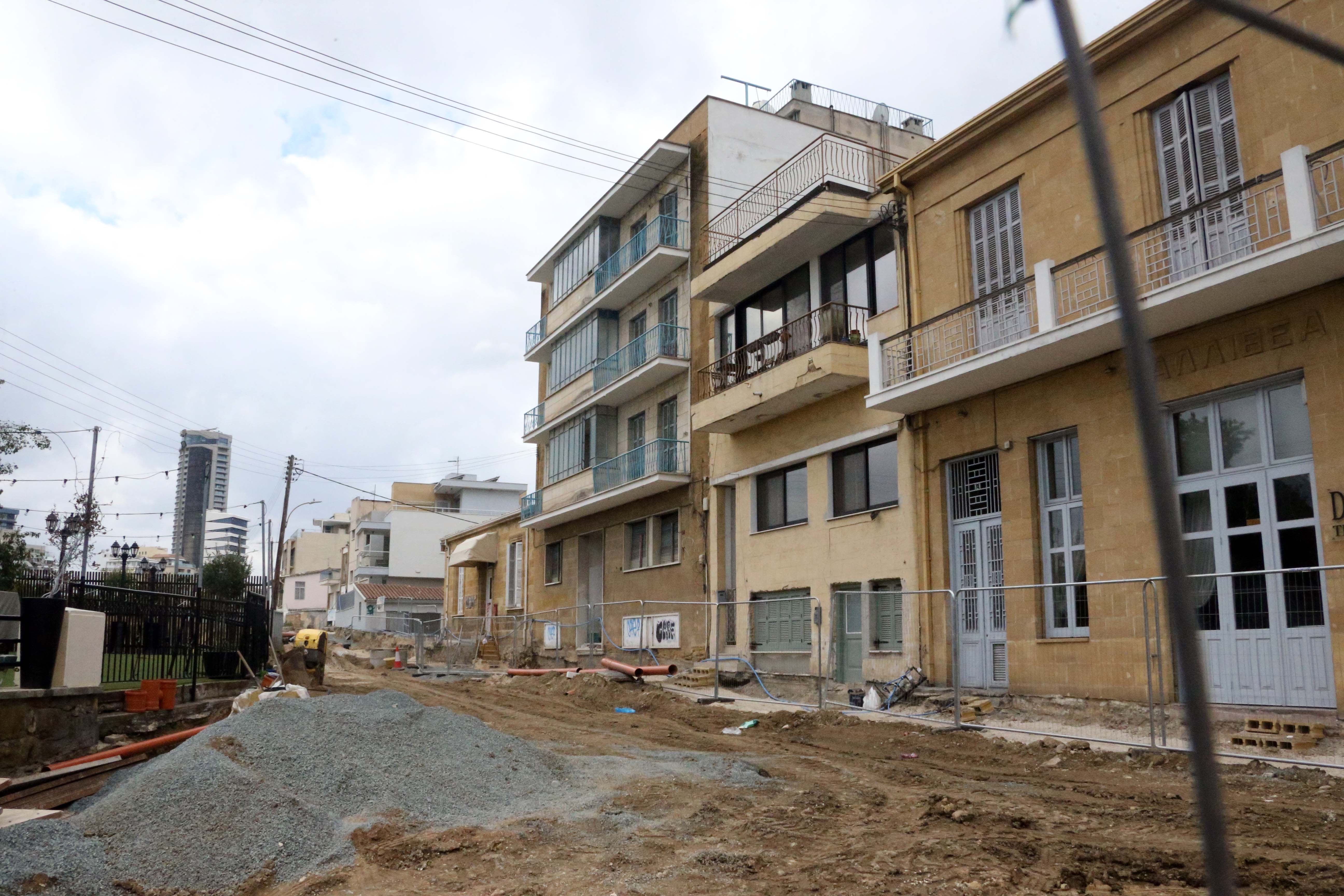
The delay was due to a combination of factors. Utility services were slow in installing and connecting the new infrastructure – which is being laid underground and completely upgraded – not helped by the narrow streets of the old town. Then there were minor delays due to weather conditions, and small deviations (like an increase in sewer diameter) from the original plan.
It’s a familiar story, and might not even merit attention in itself. Roadworks get delayed, that’s become almost standard – though of course it can still be catastrophic for the people affected.
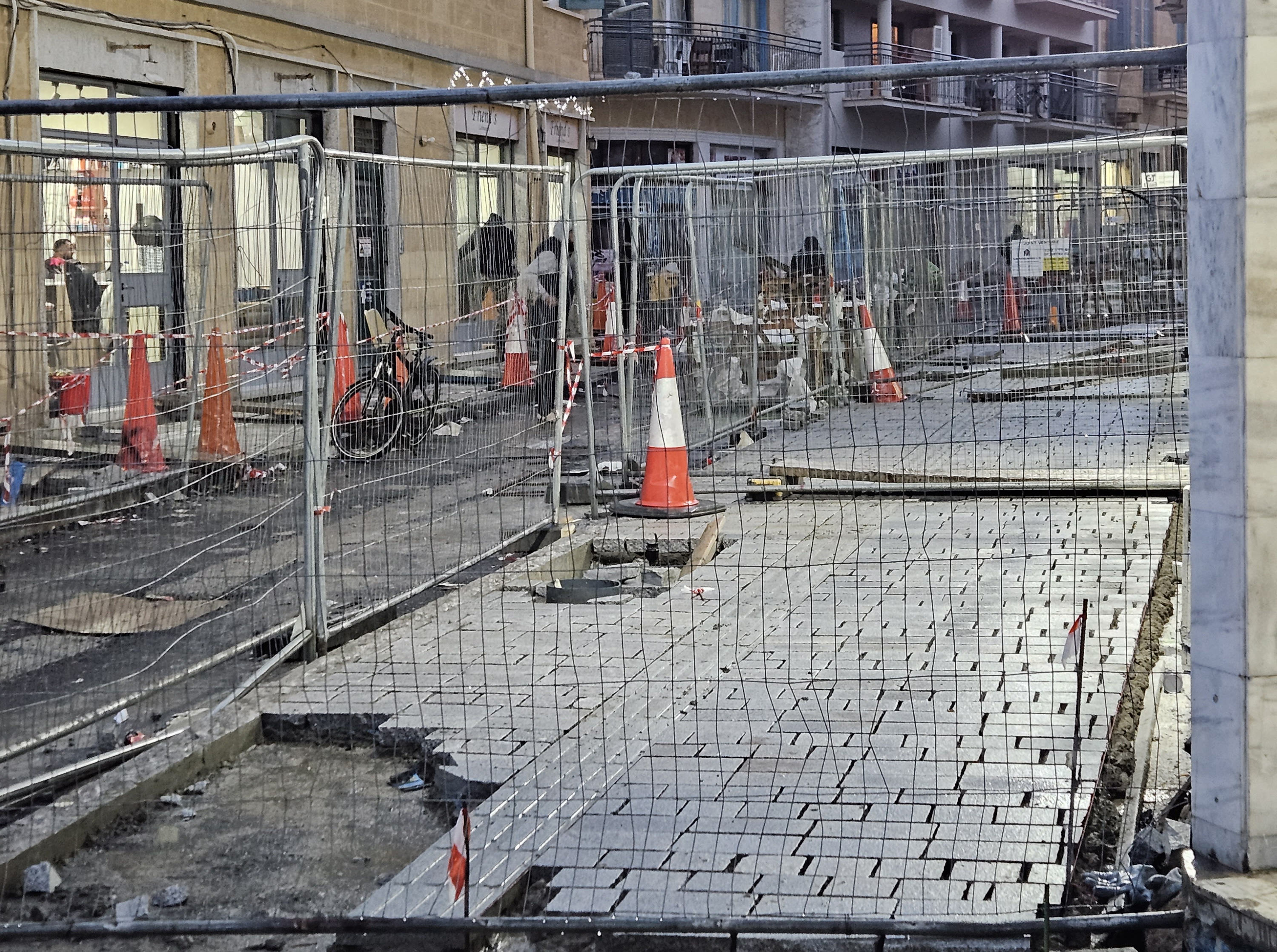
“We lost 50-60 per cent of our business,” Bangladeshi-born supermarket owner Mukul told the Cyprus Mail – and indeed that number is an average, understating the impact.
Mukul actually owns two supermarkets, one on a side street and one on Trikoupi itself. The former was still accessible, albeit with difficulty. The latter, however, lost 80-90 per cent of its business. “Even the entrance is totally closed.”
Other shopkeepers agree, saying that it’s only thanks to sympathetic landlords or (in rare cases) because they own their shops themselves that they’ve been able to stay open for the past year.
Some have closed down permanently. Just from the entrance to his shop, says Mukul, he can see six businesses shuttered by the roadworks. Abdul Aziz, supervisor of Aladdin halal butchery on Trikoupi, says his company have been forced to lay off 10 people from their two shops and restaurant, some of whom (he warns) may “go on the wrong side” out of desperation.
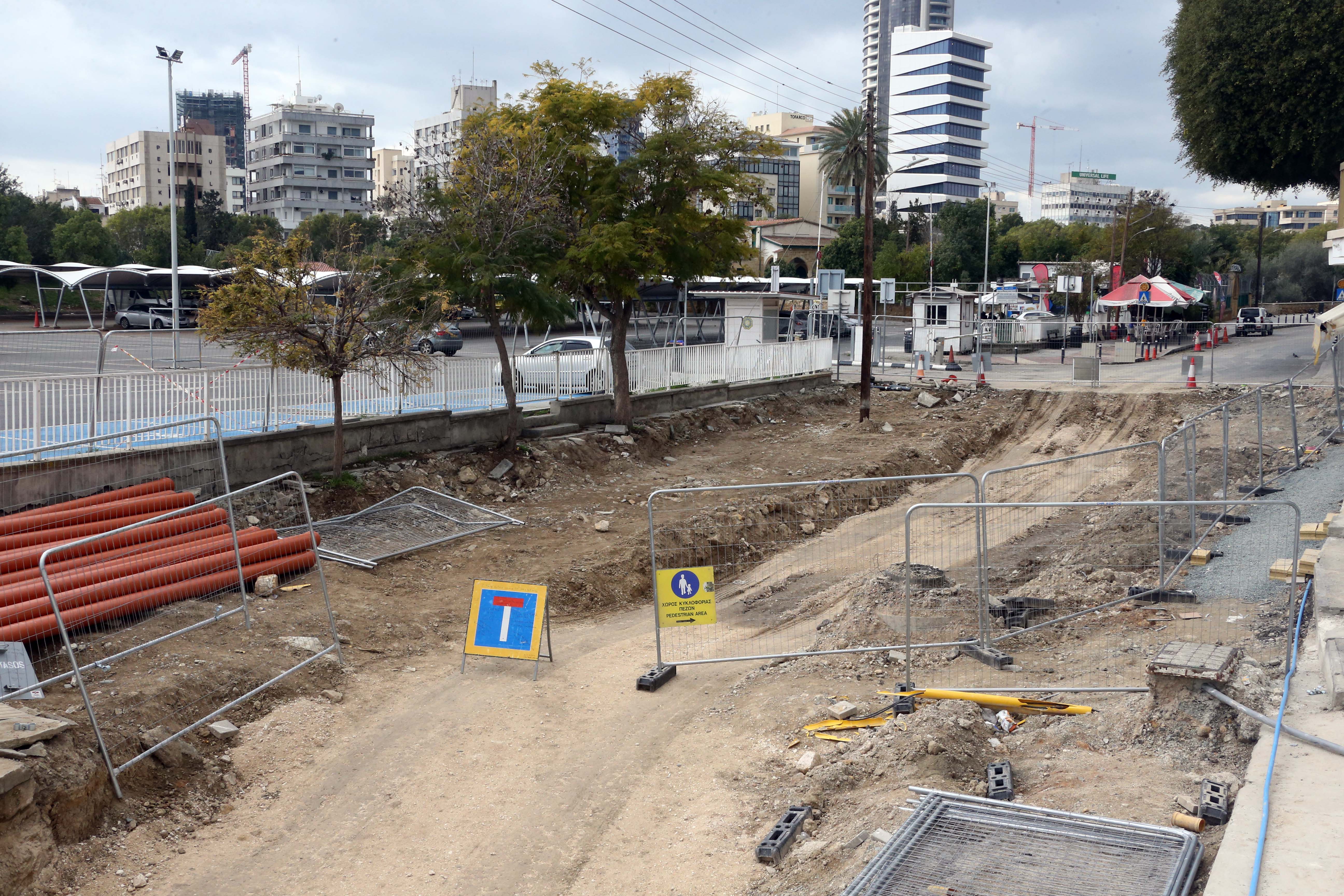
Even daily tasks have become near-impossible. Abdul Aziz describes how the meat truck now parks at Ochi every morning and the employees have to physically lug the slabs of meat down to the butchery themselves, because no provision was made for their business needs.
“They didn’t care about us… They just [want to] complete the job, that’s it.”
Have they complained to the municipality?
“No, we didn’t complain. Because they know very well. Everybody knows. Even the Cypriot people, they know very well.”
Trikoupi is something of a migrant ghetto, of course – Omeriye Mosque is just down the road – though this southern half is solidly commercial (Abdul Aziz estimates about €50,000 worth of trade takes place daily), and was buzzing a year ago. Still, as he says, ‘everybody knows’. Roadworks are roadworks, they wreak havoc and close down businesses – even if they finish on time, which they never do anyway.
The story at Trikoupi is bigger than that – starting with why the roadworks are there in the first place.
The aim is “upgrading the urban environment and dealing with traffic problems, including facilitating the movement of people with disabilities,” says the municipality in an emailed response, “with the goal of attracting and installing new creative activities in the degraded city centre”.
Yet, for instance, Constantinos – who owns a hardware store on Trikoupi, one of the few remaining Cypriot-owned businesses – believes the improvements were unnecessary.
“There was no problem, we had everything here,” he told the Cyprus Mail. “Power, phone lines, sewage, everything. They built new pavements 15 years ago – which they’re now tearing down… And they’ve destroyed all the parking. There were so many parking spaces on the street here, they haven’t left a single one.”
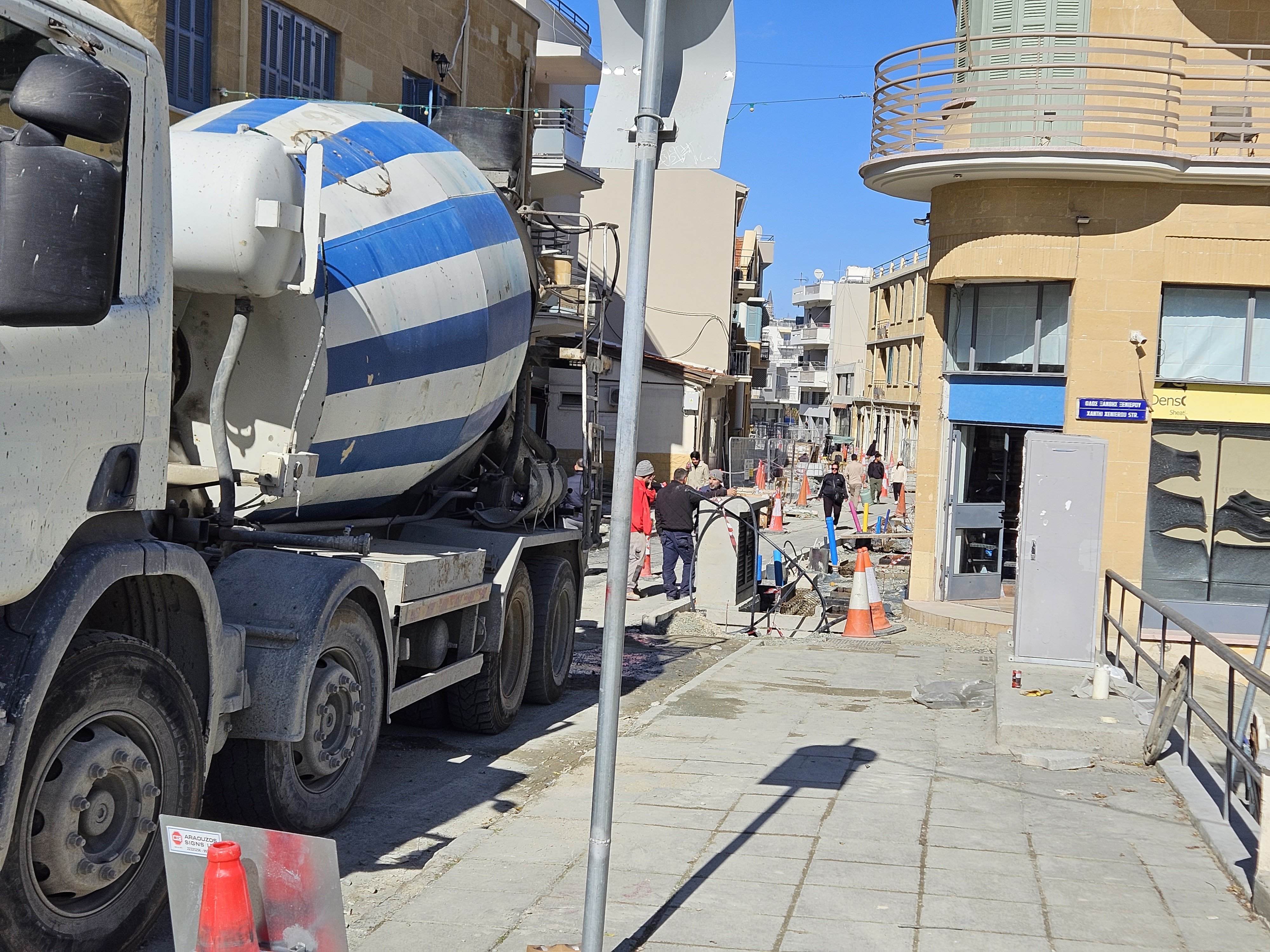
Residents blame the EU – or not actually ‘blame’, but draw a direct line between the existence of EU funds and the municipality embarking on what amounts to a grand beautification project.
The authorities have big plans for Trikoupi, and the area in general. Huge crates of cobblestones are dotted around the work site; half the street has already been cobbled. Five pedestrian crossings are being planned, plus tactile paving for the blind and urban fixtures like lamp posts and rubbish bins.
Asked directly about the locals’ fears that there won’t be any parking, the municipal response evades the question (maybe a final decision hasn’t been taken yet) – but admits that, since the cobbles don’t allow for actual pavements, trees and metal poles will be installed as a kind of demarcation line.
Trikoupi will be much-changed, if it even survives the roadworks. Mukul is pessimistic that the customers he’s lost will return. Constantinos points out that, without easy parking, even the few Cypriots who still come to the old town to shop will stop coming.
There’s a big urban project unfolding in old Nicosia – and in fact the punchline, the straw that’s threatening to break the camel’s back, is that the current roadworks are merely part of a whole series of roadworks, all of them affecting the beleaguered shops around Ochi square.
First, two side roads were closed for about 18 months. (Mukul lost business there too.) Then, the northern part of Trikoupi, where the mosque is. Now, in addition to the southern part, a section of the nearby Konstantinou Palaiologou – actually along the city walls, and leading to Ochi roundabout – has just closed for seven months, then the same road is due to close in the other direction, towards Eleftheria Square. When all is said and done, access to Trikoupi will have been hamstrung for five or six years.
“So we’ll die here,” says Mukul grimly.
Some suspect racism, claiming that things would move faster if Cypriots were the ones being affected – but in fact the rules of the game are the same. Municipal authorities are allowed to carry out the necessary urban fixes, and no-one – unless they go to court, and probably not even then – gets compensation. Inconvenience and financial losses, even to the point where a business shuts down completely, are collateral damage.
In the end, the larger question is this. Those ‘rules’ date from a time when municipalities didn’t have money for grand projects, and only intervened when it truly was necessary – when infrastructure was falling apart, for instance.
What happens now, when the EU funnels money for beautification and ‘upgrading the urban environment’? Can local authorities still shut down roads for a year or more, put people out of a job, then merrily move on to the next one?
For the shopkeepers of Trikoupi, looking at a year of heavy losses and probable annihilation in the near future, the question is mostly academic.
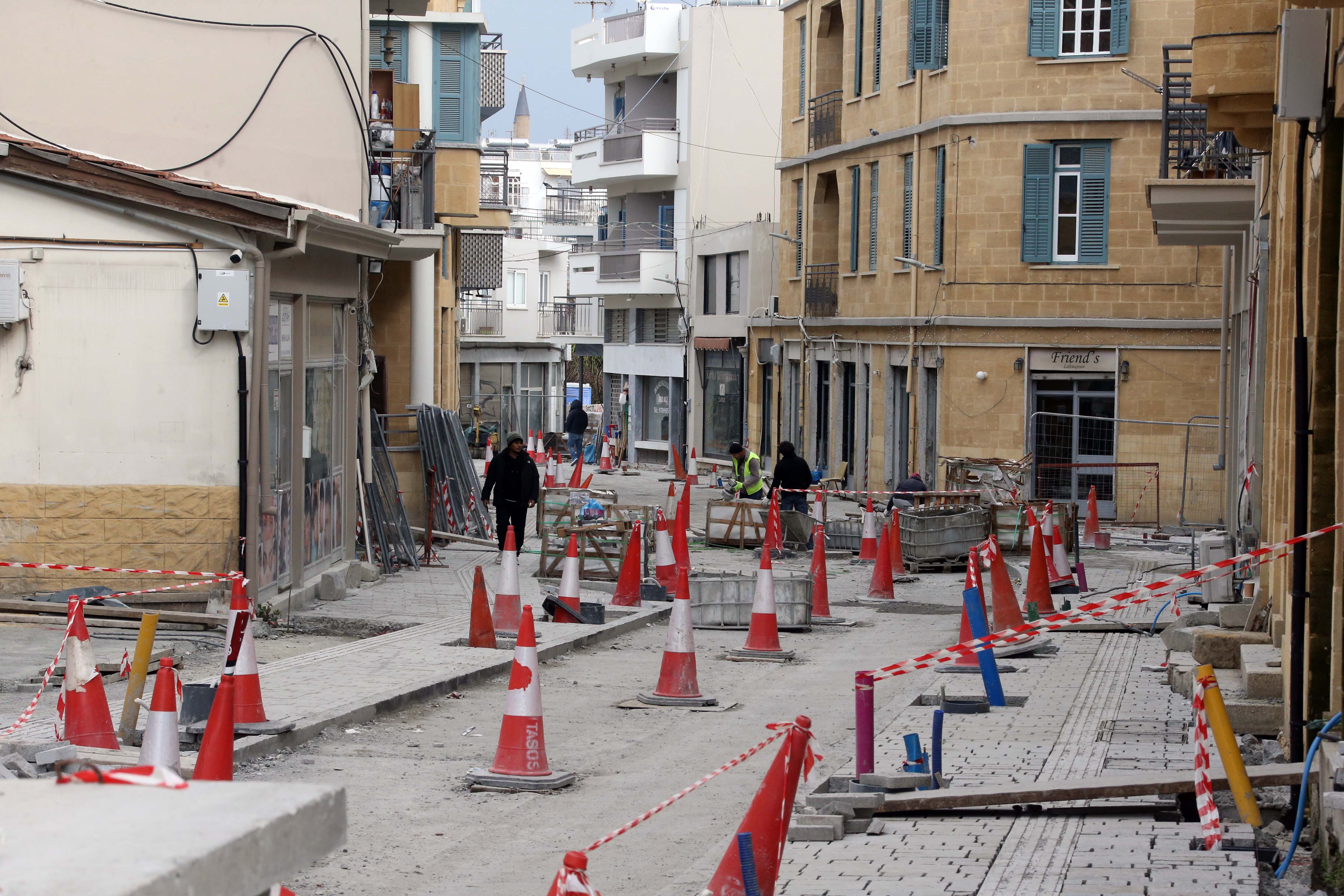





Click here to change your cookie preferences